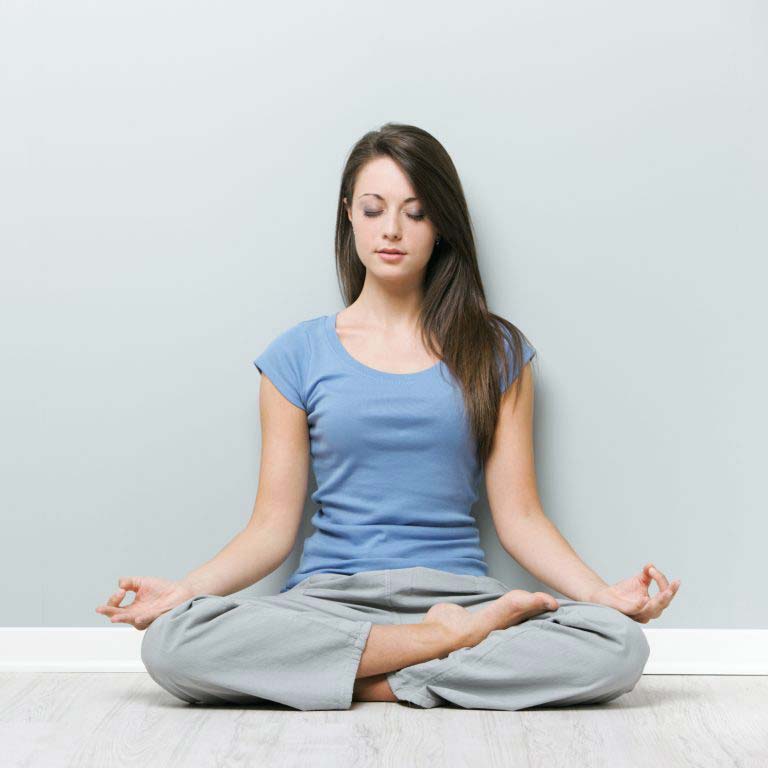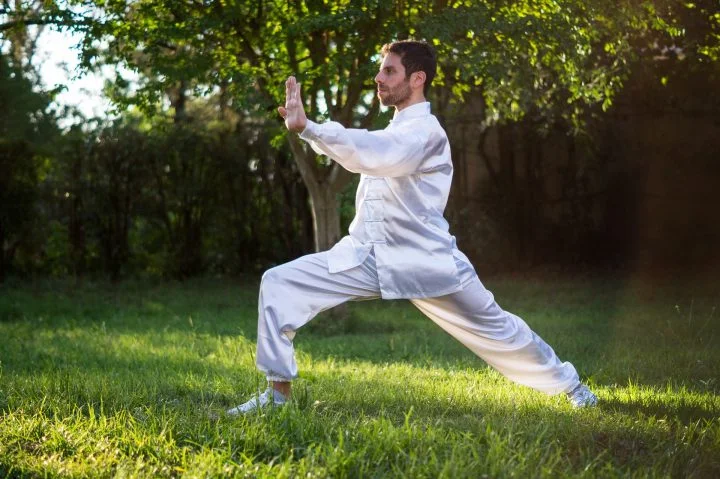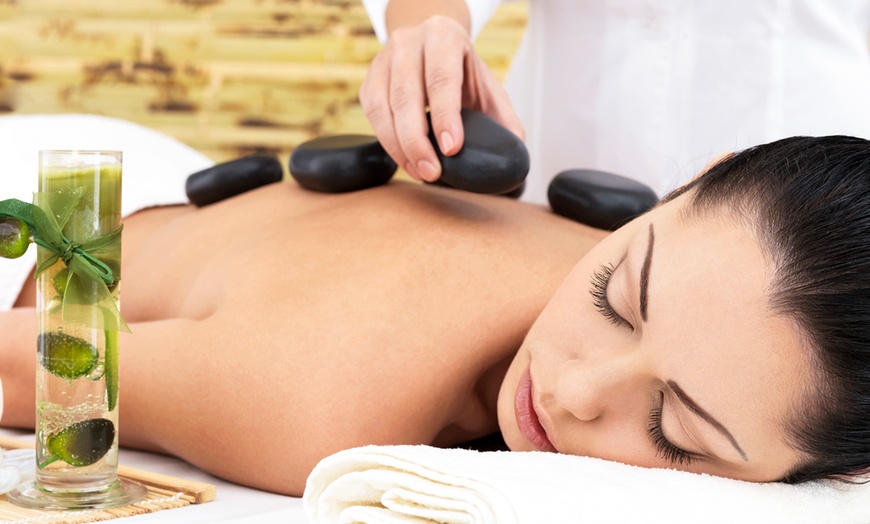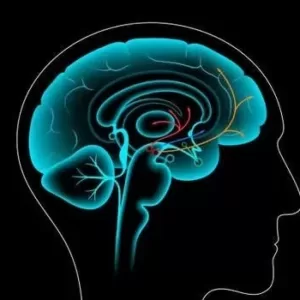What exactly is stress?
The body’s response to a challenge or demand is stress. Everyone is subject to stress, which can be brought on by a variety of events ranging from minor irritations to major life changes such as divorce or job loss. Physical components of the stress response include increased heart rate and blood pressure, as well as thoughts and personal beliefs about the stressful event, as well as emotions such as fear and anger. Although we often associate stress with negative events, it can also result from positive changes in your life, such as a job promotion or the birth of a child.

Life is stressful, and it can be overwhelming at times, but there are steps you can take to learn to relax. Normal daily activities such as grocery shopping or traffic jams can cause you to become tense. In today’s world, it may be difficult to disconnect from digital devices and streaming services. Work deadlines, child care, and a tumultuous relationship can all bring you down.
A strain could be the coronavirus pandemic, a chronic illness, or caring for an elderly relative. The COVID-19 pandemic has brought much attention to the issue of stress. Stress is really how your body and brain respond to challenges, such as pressure at work, [handling] the pandemic, increasing family responsibility, and other negative experiences that may impact and create stress.
The Definition of Stress.
When you’re overwhelmed or unable to handle a situation, your body may react negatively. The so-called “fight or flight” response kicks in to prepare you to flee, causing stress.
Experiencing short periods of stress is just fine, in fact, it’s even healthy and quite normal.
It is unhealthy and dangerous to live a stress-free life. To keep us alive, we need a little bit of a challenge.
However, too much stress is harmful to your health. Some situations, such as the isolation you may have felt during the pandemic, can lead to chronic stress, which can lead to health problems.
It’s natural to feel overwhelmed by a global pandemic, but experts in this field emphasise the importance of finding ways to relax. According to various Pundits, yoga three times a week and runs on the treadmill every day can minimise worries considerably or at least can help to keep it at bay.
Over time, stress can have a significant impact on our bodies and brains, leading to life-threatening chronic conditions like anxiety and depression.
Given the COVID situation, we’ve seen a lot more anxiety and depression in the last year which seems to move northwards.
Relaxation Techniques: What Are They and How Do They Work?
The body’s reaction to challenges and demands is referred to as stress. There are healthy ways to deal with stress, whether it is positive or negative. In order to manage stress, it’s critical to get enough sleep.
There is no one-size-fits-all shoe, “five or six” approaches for stress reduction that is based on scientific observation and experience. There are a variety of other therapies that may be beneficial to you. You can either practise one at a time or all at once. However, a variety of relaxation techniques can assist you in winding down and de-stressing.
Exercises in Breathing
Because you simply focus on your breathing, this is one of the simplest stress reduction techniques.
Sit or lie down in a quiet place and take a deep breath in through your nose, then slowly exhale through your mouth, or through your nose if that feels better.
The 4-7-8 approach is to Inhale for 4 seconds, hold for 7 seconds, and finally exhale for 8 seconds.
Deep breathing can help you relax and calm down.

Mantra Meditation and Mindfulness
Mindfulness is an ancient form of meditation that encourages people to be aware of what is going on in the present moment.
It encourages you to pay attention to your body, your thoughts, and the environment.
On the other hand, mantra meditation is the polar opposite of mindfulness meditation. This technique involves focusing all of your attention on a single object, such as a mantra, a candle flame, or a phrase.
In both types of meditations, you simply refocus when your mind wanders.
It’s mental ability. You won’t be able to do it very well in the first two weeks. Your mind will constantly chatter and distract you, which is natural.
However, with practice, you will improve.
Muscle Relaxation That Gets Better Over Time
The goal of this technique is to gradually tighten and relax muscle groups. You can combine it with breathing exercises and guided imagery to make it more effective.
Close your eyes and take a few deep breaths while sitting or lying down in a comfortable position. When you inhale, your stomach expands, and when you exhale, it contracts.
Start with your head and face muscles and work your way down the body, or start with your toes and work your way up. Tense and hold each muscle group for about 5 seconds, then relax for 30 seconds before repeating.
Before beginning progressive muscle relaxation therapy, it is advisable to consult your doctor if you have a heart condition.
Visualization or guided imagery
Imagine lying on a sandy beach with a gentle breeze gently moving the warm air around you. As you transport yourself there, use your senses to smell the sea and feel the sun. This is referred to as guided imagery or visualisation.
It makes use of your mind’s power to shift your focus to a more peaceful time or event.
If we’re in a stressful situation, simply shifting our minds and focusing on a time when we were really, really relaxed can help us relax.
This exercise focuses on the sensations of warmth and heaviness in various parts of your body. Then silently repeat nice words or statements for each body part, such as my arms are heavy and warm. Emotional and physical calmness can be achieved using this technique.
To reduce stress and your heart rate, autogenic therapy also incorporates guided imagery and breathing exercises.
Tai Chi the most popular forms of exercise.

Similar low-intensity exercises have been practised for thousands of years. Physical and so-called “meditative” movements are used both to reduce stress and blood pressure.
Tai chi, like a dance, entails slow, graceful movements. As you shift your weight from one pose to the next, you’ll take deep breaths and focus on your body.
These exercises can be done while sitting in a chair, depending on your physical abilities, though tai chi is usually done standing.
It’s a good idea to seek out a licenced professional before beginning yoga so that you can learn the basic postures and determine which type of yoga is best for you.
Many people swear by exercise to help them cope with stress in their everyday lives.
Walking, running, biking, hiking, or tennis can all help you feel better by increasing endorphins, the feel-good chemicals in your brain. When your body produces more endorphins, you may find it easier to forget about your worries and achieve a long-term sense of happiness.
Exercising with someone else can help you get out of your physical space and give you someone to talk to, which can help you relax.
Relaxation Techniques of Other Kinds
The goals of many de-stressing therapies are similar. They’re designed to help you pay attention to your body and focus on aspects of your breathing or other exercises that can help you lower your blood pressure and feel better.
Biofeedback is a technique that involves measuring body functions and teaching you how to control them. Self-hypnosis is a technique in which a hypnotist teaches you to relax when you hear a phrase or receive a nonverbal cue.
When a therapist uses music to achieve health goals, it is known as music therapy. Art therapy is a type of therapy that uses art to improve your physical, emotional, and mental health. Aromatherapy is a type of treatment that involves the use of essential oils.
Soaking compresses, and even steam baths are all examples of hydrotherapy.
While relaxation techniques are generally considered safe for healthy people, there have been reports of negative side effects such as increased stress, negative thoughts, or a fear of losing control. Consult your doctor about which relaxation technique is best for you, based on your health and the relaxation technique you want to try.
How can we deal with stress in a healthy manner?
Stress has a critical function in our lives: it allows us to react quickly to threats and avoid danger. Long-term stress, on the other hand, can cause mental health issues (such as anxiety and depression) as well as physical health issues. According to a large body of research, increased stress levels interfere with your ability to deal with physical illness. While no one can completely avoid stress, you can work to manage it in healthy ways that will help you recover faster.
To improve your health, eat and drink the right things. Some people try to relieve stress by drinking too much alcohol or overeating. These actions may appear to help in the short term, but they may actually increase stress in the long run. Caffeine can amplify the negative effects of stress. Stress can be alleviated by eating a healthy, well-balanced diet.
Exercise on a regular basis.
Exercise has been shown to be a powerful stress reliever in addition to its physical health benefits. Set reasonable goals for yourself and consider non-competitive aerobic exercise, weightlifting, or movement activities like yoga or Tai Chi. Endorphins—natural substances that help you feel better and keep a positive attitude—have been shown to be released during aerobic exercise.
It may appear counterintuitive, but putting physical stress on your body through exercise can help you relax.
When you exercise on a regular basis, the benefits are greatest. People who exercise on a regular basis are less likely to suffer from anxiety than those who do not.
There are several reasons for this:
Exercise lowers the stress hormones in your body, such as cortisol, in the long run. It also aids in the release of endorphins, which are feel-good chemicals that also act as natural painkillers.
Sleep: Exercise can help you get a better night’s sleep, which can be harmed by stress and anxiety.
Regular exercise can help you feel more competent and confident in your body, which can help you feel better mentally.
Try to find an exercise routine or activity you enjoy, such as walking, dancing, rock climbing or yoga. Activities that involve repetitive movements of large muscle groups, such as walking or jogging, can be particularly stress-relieving. Regular exercise can help you relax by releasing endorphins and improving your sleep and self-esteem.

Tobacco and nicotine products should be avoided.
Nicotine users frequently refer to it as a stress reliever. On the other hand, Nicotine causes the body to become more stressed by increasing physical arousal and decreasing blood flow and breathing.
Relaxation techniques should be studied and practised.
Taking time to relax every day can help you manage stress and protect your body from its negative effects. Deep breathing, imagery, progressive muscle relaxation, and mindfulness meditation are just a few of the techniques available. There are a plethora of online and mobile apps that offer guidance on these techniques; while some require a purchase, the majority are free.
Stress-inducing factors should be reduced.
If you’re like most people, you probably have too many obligations and not enough time. These are, for the most part, demands that we have made. You can free up time by practising time-management skills such as asking for help when needed, setting priorities, pacing yourself, and scheduling time for self-care.
What to Do If You Can’t Get Enough Sleep
Insomnia (inability to sleep) can be caused by a variety of factors, including discomfort, stress from personal concerns, or medication side effects. If you’re having trouble sleeping, try the following suggestions:
Create a consistent sleep schedule by going to bed and waking up at the same time every day.
Make sure you have a comfortable bed and surroundings. Arrange the pillows in a way that allows you to stay in a comfortable position.
Maintain a dark and quiet environment in your bedroom.
Your bedroom should only be used for sleeping. In your bedroom, don’t work or watch TV.
Taking too many naps during the day is not a good idea. At the same time, it’s important to remember to alternate periods of activity with periods of rest.
Share your thoughts
Talk to your spouse, partner, or a trusted friend if you’re nervous or anxious. Get your worries out of your head. Friends and family can provide social support to help you get through difficult times. Being a part of a friend network gives you a sense of belonging and self-worth, both of which can be beneficial during difficult times.
Spending time with friends and children, according to one study, helps women release oxytocin, a natural stress reliever. The “tend and befriend” effect is the polar opposite of the fight-or-flight response.
Relax by listening to soothing music.
Music has a very relaxing effect on the body. Slow-paced instrumental music can help to induce relaxation by lowering blood pressure, heart rate, and stress hormones.
Some types of music, such as classical, Celtic, Native American, and Indian music, can be particularly relaxing, but simply listening to music you enjoy can also be beneficial. The sounds of nature can also be very relaxing. This is why they’re frequently used in music for relaxation and meditation. Listening to music that you enjoy can help you de-stress.
Take a deep breath
Your sympathetic nervous system is activated by mental stress, signalling your body to go into “fight-or-flight” mode.
Stress hormones are released as a result of this reaction, and you may experience physical symptoms such as a faster heartbeat, shallower breathing, and constricted blood vessels. Deep breathing exercises can aid in the activation of the parasympathetic nervous system, which is in charge of the relaxation response.
Diaphragmatic breathing, abdominal breathing, belly breathing, and paced respiration are all examples of deep breathing exercises. Deep breathing aims to bring your attention to your breath, slowing it down and making it deeper. Your lungs fully expand and your belly rises when you breathe deeply through your nose. This lowers your heart rate and makes you feel more relaxed.
Aroma Therapy

Using essential oils or lighting a scented candle can help you relax and feel less stressed.
Some scents are particularly relaxing. Here are a few of the most soothing aromas:
- Lavender
- Rose
- Vetiver
- Bergamot
- Chamomile Romana
- Neroli
- Frankincense
- Sandalwood
- Ylang ylang is a flower that grows in the ylang y
- Orange blossoms or oranges
- Geranium
Aromatherapy is the practice of using scents to improve one’s mood. Aromatherapy has been shown in several studies to reduce anxiety and improve sleep.
Caffeine consumption should be reduced.
Caffeine, found in coffee, tea, chocolate, and energy drinks, is a stimulant. Anxiety can be exacerbated by high doses (10Trusted Source).
The amount of caffeine that a person can tolerate varies from person to person.
If you find that caffeine makes you jittery or anxious, try reducing your intake.
Despite the fact that many studies show that coffee can be beneficial when consumed in moderation, it is not for everyone. A moderate amount of coffee is considered five or fewer cups per day
Laugh aloud
When you’re laughing, it’s difficult to be anxious. It’s beneficial to your health. Laughter can boost your immune system and improve your mood in the long run.
People in the laughter intervention group experienced more stress relief than those who were simply distracted, according to a study of cancer patients (15Trusted Source). Consider watching a funny TV show or socialising with people who make you laugh. To relieve stress, look for humour in everyday life, spend time with funny friends, or watch a comedy show.
Get in the habit of saying no.
You don’t have control over all stressors, but you do have control over some of them. Take charge of the aspects of your life that you have control over and that is causing you stress.
Saying “no” more often could be one way to accomplish this. This is especially true if you’re taking on more than you’re capable of, as juggling multiple responsibilities can leave you feeling overwhelmed.
Stress levels can be reduced by being selective about what you take on — and saying no to things that will unnecessarily add to your workload. Make sure you’re not taking on more than you can handle. One way to manage your stress is to say no.
Avoid procrastination at all costs.
Staying on top of your priorities and not procrastinating is another way to manage your stress.
Procrastination can cause you to react in a reactive manner, leaving you scrambling to get back on track. This can lead to stress, which can have a negative impact on your health and sleep. Make a habit of making a to-do list that is prioritised. Set realistic deadlines for yourself and work your way down the list.
Working on the things that need to be done today and giving yourself chunks of uninterrupted time can be stressful in and of itself, as switching between tasks or multitasking can be. Make a list of what needs to be done and schedule time for it. Keeping track of your to-do list can help you avoid the stress that comes with procrastination.
Go to a yoga class.
Yoga has become a popular stress-relieving and exercise method for people of all ages. While yoga styles differ, they all have the same goal in mind: to bring your body and mind together. Yoga does this primarily by raising body and breath awareness. Yoga’s impact on mental health has been studied in some depth. Overall, studies show that yoga can improve mood and may be as effective as antidepressant drugs in treating depression and anxiety
However, many of these studies are limited, and there are still unanswered questions about how yoga works to reduce stress. Yoga’s benefit for stress and anxiety appears to be related to its effect on the nervous system and stress response in general. It may help to lower cortisol levels, blood pressure, and heart rate, as well as increase GABA, a neurotransmitter that is reduced in mood disorders.
Yoga is widely used to relieve stress. It may aid in the reduction of stress hormones and blood pressure. Mindfulness-based cognitive therapy, mindfulness-based stress reduction, yoga, and meditation are all methods for increasing mindfulness.
Anxiety and depression symptoms can be reduced by practising mindfulness.
Cuddle -Always feel good

Cuddling, kissing, hugging, and sex is all effective stress relievers. Positive physical contact can aid in the release of oxytocin and the reduction of cortisol levels. This can aid in the reduction of blood pressure and heart rate, both of which are physical manifestations of stress.
Humans aren’t the only animals who use cuddling to relieve stress. Chimpanzees also comfort stressed friends. Positive touch, such as cuddling, hugging, kissing, and sex, has been shown to help reduce stress by releasing oxytocin and lowering blood pressure.
Spend time with your animal companion.
Having a pet can help you feel less stressed and happier.
Interacting with animals may aid in the release of oxytocin, a brain chemical that promotes happiness (23Trusted Source).
Having a pet can also help you relax by giving you a purpose, keeping you active, and providing companionship — all of which are beneficial to anxiety reduction. Spending time with your pet is a stress-relieving and enjoyable activity.
Some Useful Tips
If possible, start taking diuretics (also known as “water pills”) earlier in the day so you don’t have to get up in the middle of the night to use the restroom.
If you’re having trouble sleeping, get up and do something relaxing until you fall asleep. Don’t lie in bed all night worrying about when you’ll fall asleep.
Do not rely on sleeping pills to get you to sleep. When combined with other medications, they can be dangerous. If other non-medication methods fail, use them only if your healthcare provider recommends them for a limited time.
Supplements should be considered.
Several supplements help to reduce stress and anxiety. Here’s a quick rundown of some of the most common:
Lemon balm is a mint family member that has been studied for its anti-anxiety properties
Omega-3 fatty acids: According to one study, medical students who took omega-3 supplements had a 20% reduction in anxiety symptoms.
Ashwagandha: Ashwagandha is an Ayurvedic herb that is used to treat stress and anxiety. It appears to be effective, according to several studies.
Green tea contains a lot of polyphenol antioxidants, which are good for your health. It raises serotonin levels, which may help to reduce stress and anxiety.
Valerian root is a popular sleep aid due to its sedative properties. It contains valerenic acid, which reduces anxiety by altering gamma-aminobutyric acid (GABA) receptors.
Kava kava is a psychoactive pepper that belongs to the pepper family. Long used as a sedative in the South Pacific, it is now being used to treat mild stress and anxiety in Europe and the United States.
If you have a medical condition, you should talk to your doctor about supplements because some can interact with medications or cause side effects.
Last but not least
Although stress and anxiety can occur in the workplace and your personal life, there are a number of simple ways to alleviate the stress.
These suggestions frequently involve diverting your attention away from the source of stress.
Exercise, mindfulness, music, and physical intimacy can all help you feel less anxious while also improving your work-life balance.
Note: Contact our Writers at www.eastsidewriters.com for writing Blogs/Articles on any niche. We have experts in various domains from Technology to Finance and from Spirituality to Lifestyle and Entertainment.
Originally posted 2021-08-06 08:20:28.







Pingback: How To Stay Energised and Happy Throughout the Day
Pingback: 12 foods to be avoided for young and glowing skin - Eastside Writers
Pingback: Is it good to go nude or sleep with your clothes on? - Eastside Writers
Pingback: Is it good to go nude and sleep without your clothes on? - Eastside Writers
Pingback: Are You Sure That All Your Dreams Will Come True - Eastside Writers
Pingback: Shilajit- It's Unknown And Untold Wonders in Your Well-Being - Eastside Writers
Pingback: Cancer- Beat it with ayurveda and a strong will - Eastside Writers
Pingback: Hypoactive Sexual Desire Disorder - Its Cause and Remedy - Eastside Writers
Pingback: Two Proven Techniques To Get Rid Of Stubborn Belly Fat | Eastside Writer
Pingback: How To Free Your Mind From Unnecessary And Unproductive Overthinking - Eastside Writers
Pingback: Take Your Hair Growth To Your Desired Length With These Hacks - Eastside Writers
Pingback: Increase Your Testosterone Level And Sperm Count With These Herbs - Eastside Writers
Pingback: 12 benefits children should grow along with dogs
Pingback: Know Why You Should Always Speak Truth-It's Eternal And Celestial - Eastside Writers
Pingback: Top 10 Benefits of Yoga | Benefits of Yoga
Pingback: Avoid Letting Chronic Stress Control Your Life- It Can Be Dangerous - Eastside Writers
Pingback: Multiple Benefits Of Safed Musli In Maintaining Health & Boosting Energy
Pingback: Salt Shock: The Impact of Sodium Imbalance on Your Health - Eastside Writers
Pingback: Shedding Pounds for a Healthier You: Inspiring Reasons And 12 Tips to Reduce Your Weight - Eastside Writers
Pingback: Ashwagandha - The Vitalizing Herb For Your Body's Natural Rejuvenation
Pingback: Unraveling the Sleeping Conundrum: The Surprising Effects of Oversleeping on Your Health - Eastside Writers
Pingback: Is Your Boss a Psychopath? Recognizing Signs of Workplace Psychopathy - Eastside Writers
Pingback: The Overlap Between Bad Boss and Bad Spouse: Exploring the Parallels in Behavior and Impact - Eastside Writers
Pingback: The True Wealth: Why Peace of Mind Outweighs Money as the Ultimate Motivator - Eastside Writers